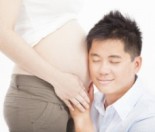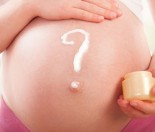This infertility article describes the most common treatments for infertility and explains what each treatment involves for parents to be.
As the rates of infertility rise each year in New Zealand, treatments become more and more available in the main centres around the country. As many as one in six couples report having difficulties conceiving at some stage, although the definition of infertility is being unable to get pregnant after trying for at least one year – and some experts would recommend two years, depending upon the age of the couple.
There is a lot of work underway to help to understand the link between stress and infertility. Many years ago, when women were unsuccessfully trying to get pregnant, they were often advised by their doctors to give up work, to reduce their stress and increase their chances of getting pregnant and it worked for some. Of course, nowadays this would be impractical as women are often planning to continue working after the pregnancy and birth anyway. there does remain work to be done to understand the link between stress and infertility.
Infertility is reported to be on the increase due to
- Increased age that women are starting to have a family – the quality of the woman’s eggs reduces dramatically through her 30s, lowering her chances of conceiving
- Increased obesity levels in men and women
- Sexually transmitted infections (STI) which can damage the woman’s reproductive system, particularly her fallopian tubes
- Reduced quality of sperm.
Treatment options for infertility
The first decision is whether you wish to seek natural therapy and advice to assist conception and pregnancy, or whether you wish to seek the help of medical technology.
Natural therapy options
Naturopathic treatment for infertility
- Using herbs and nutrition to promote your fertility
- Detoxification to remove any substances from your body that could be reducing your fertility
- Stress control to improve your chances of getting pregnant.
Hypnotherapy treatment to help couples to conceive
- To reduce stress and increase the confidence that the couple have in their ability to conceive
- Download Fertility Hypnosis where self hypnosis can double the chance of fertilisation.
Acupuncture treatment for infertility is thought to help by
- Increasing the blood supply to the reproductive system
- Stimulation of the brain to release neurotransmitters and hormones of reproduction
- Find out more about acupuncture and Chinese medicine interventions.
These treatment options can be used in conjunction with medical options.
Medical and technological treatments for infertility
If the reason for your infertility is known then you may be offered medical treatment to correct the cause, for example:
- Endometriosis is treated by surgery to remove or destroy the tissue that has grown on the outside of the womb
- Blocked fallopian tubes may be corrected by surgery, in some cases. Others will need assisted reproduction, such as IVF.
- Ovulation problems, such as polycystic ovary syndrome, may be treated with hormones or drugs.
Unexplained infertility (and some known causes) may be successfully treated with drugs or assisted reproduction
Drugs to increase your chances of getting pregnant
Your doctor may offer clomifene citrate, which is a drug taken by the woman to stimulate her ovaries to release eggs – thereby increasing her chances of getting pregnant. There are risks, however, of having twins or triplets or, as with any drug, a drug reaction.
Assisted reproduction
These treatments will enable some couples to get pregnant without having sexual intercourse. The success of the treatments will vary according to other factors, such as age and health. They are usually perceived as stressful by the couples involved and a support network is available through treatment centres and support groups nationally.
Intra Uterine Insemination (IUI)
The man’s sperm is placed inside the woman’s womb. This is recommended for unexplained infertility and a slightly low sperm count.
If you have infertility as a result of endometriosis, IUI may be combined with drugs to stimulate egg release.
In Vitro Fertilisation (IVF)
This is one of the main treatments for infertility. It is a long process-
- Firstly, the woman receives drugs to make her own ovaries inactive
- Secondly, she will be given drugs to make her ovaries active once more and hopefully produce more than one egg
- Thirdly, the eggs are collected from the woman’s ovaries
- Meanwhile, the sperm is collected from the man and on the same day as…
- The egg and sperm are mixed together in the laboratory
- These fertilised eggs (embryos) are then incubated (kept warm) for 2-6 days
- The embryos are then placed inside the woman’s womb, to attach and grow and hopefully result in a successful pregnancy.
IVF with Intracytoplasmic sperm injection (ICSI)
A single sperm is injected directly into an egg – this is used where the sperm are not able to fertilise the egg in the normal way, for example due to a low sperm count or sperm in the testes that are not in the semen, due to a blockage in the tube.
Donor sperm (or insemination)
Sperm is donated by an anonymous donor.
This may be suggested as an alternative to ICSI. It may also be necessary if there are no sperm, or if the man has an infectious disease which could be passed onto his children.
Egg donation
Some women use donor eggs for IVF, for example if they do not ovulate or have a genetic disorder that could be passed onto their children.
These are the most commonly used infertility treatments for unexplained infertility. It cannot be stressed enough that each couple experiencing fertility problems needs to be investigated and treated individually. Treatments described in this article will only be successful for some couples and medical advice will vary according to your own individual history and circumstances.
Useful articles and resources on treatments for infertility
We have more information on Increasing Your Chances of Getting Pregnant. You can also found out more about the Causes of Infertility.
Investigating Infertility explains the most common investigations that couples undergo when they’re experiencing infertility.
Find out more about fertility hypnosis or Chinese medicine treatments.






Awesome for my learning. Thanks excellent information 🙂 very useful.
Great for us!!!! Luv it:-) add me!!
Hi We have just started TTC again after 2 losses (miscarriage and ectopic) so naturally I am very paranoid!! I have been having electrolysis on my face for about a year but now we are TTC am concerned about the safety. I know its not recommended during pregnancy due to a lack of research on its safety but I wonder about TTC and possibly being pregnant. – My thinking is, if we face another loss, I don’t want to worry it was due to something I did (like electrolysis) and maybe better to be safe than sorry. What are your… Read more »
Hi Nessy
It is formally recommended not to have electrolysis
while trying to conceive – however to the best of my knowledge there are
no actual documented adverse reactions … it is more a case of the
peaking maternal adrenaline electrolysis can produce, potentially may
not be ideal for baby – but also is technically not harmful.
If
you are concerned, it is best perhaps not to have any electrolysis after
you’ve ovulated – until it’s confirmed you’re not pregnant.
Perhaps that would provide you with the peace of mind you seek.
Kind regards,
Kathy Fray
Hi, I am about to start a “microdose flare” IVF cycle with Fertility Associates.The cylce starts with the Microgynon pill and then onto Buserelin injections (50 ug) twice a day for approx a week.I have been told the Buserelin creates a menopause, but have not found any information as to whether this is PERMANENT or not. I am mainly concerened as if the IVF cycle doesn’t work, I would hate to be lumped with an early menopause at 40 as an after effect! I have been told my hormone levels are prefectly normal for my age (even good FSH) and… Read more »
Hi I’m sorry to not be more helpful in this area, but I’m not a
fertility specialist and I highly recommend that you speak to the doctor
who is prescribinbg Buserelin for you as to the likely side effects.
Good luck, hope you are successful
Paula, midwife at Kiwi Families
Hi There
I started my IFV cycle just over a year ago and was also
injecting Buserelin. Buserelin has side affects that are like going
through menopause but don’t worry as it will not doing anything to you.
The hole process of the IVF tricks your body in accepting a pregnancy